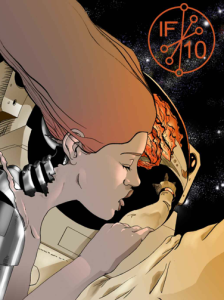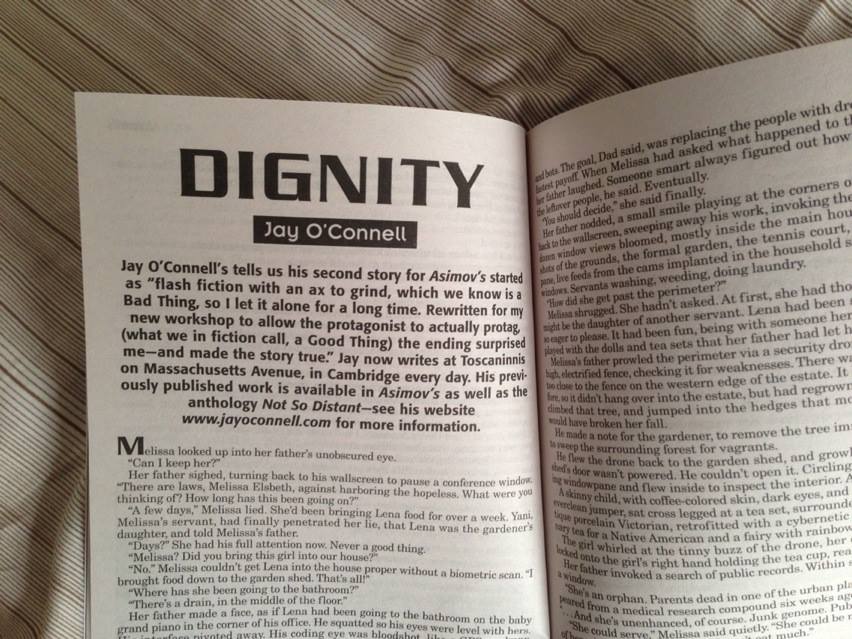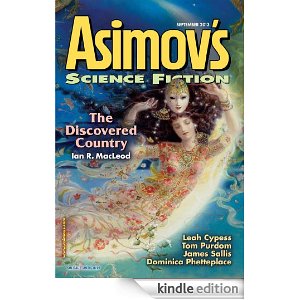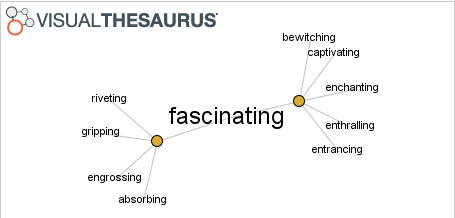 So I’ve written about this before, but I’ll mention it again; when you start writing and submitting and getting rejected, there’s a temptation to take some part of a rejected story, something that fires you up, tickles you, enrages you, delights you, and give it a twist and plunk it into the new story and keep working on it.
So I’ve written about this before, but I’ll mention it again; when you start writing and submitting and getting rejected, there’s a temptation to take some part of a rejected story, something that fires you up, tickles you, enrages you, delights you, and give it a twist and plunk it into the new story and keep working on it.
There’s nothing wrong with this, really, until you start publishing the things.
Then you realize, ‘OMG, people have seen this from me before.’
But after another look, a scratch of the head, you realize, “Oh. Waitaminute. Writers I like to read kinda do this too. Themes, images, characters, recur. It’s OK. This story is still good. People ought to read it. It’s real.”
One of the things that swirls around in my half-century old brain is the degree to which I assumed I’d live and work off the planet, if I wanted to. Men were being fired off to the moon on a weekly basis, it seemed like, when I was growing up. The teachers wheeled the big tube TVs into the classroom and teared up while we watched the mirror-faced balloon like heroes bouncing through washes of analog noise, and it seemed normal. I mean, you’re a kid. Sure. People are going to the moon. Of course they are.
Apollo ends and the shuttle is this slow motion train wreck of escalating costs and shrinking launch schedules. The libertarians like to say that the oversold promise of the shuttle helped depress private development in space for decades; progressives bemoan the ever diminishing budgets at NASA, and the failure to continue the government push into the final frontier. Whoever you blame, the end result remains. Space travel peaked when I was in elementary school.
Now, we have really really good and fast computers, in our goddamn pockets, excellent CGI, fantastic SF movies like Gravity, which aren’t really even SF anymore, and I’m personally never ever getting into space. Ever ever ever.
So my characters wrestle with this, even in fictional worlds. This feeling of being stifled, this sensation of a frontier opening and abruptly closing. This sense that as a country, as a species, as a planet, we’re off track.
As Woody Allen said about God, the best you can say about us is that we’re basically a planet of underachievers.
In fiction, though, there are answers, even if they’re not the ones the protagonists are looking for, opportunities and tragedies, joys and sorrows amplified, crafted, transformed. In the secondary creation, all things are possible, and even if I deny myself perfect wish-fullfillment there, I find the landscape invigorating.
There’s a chance for us yet. As a species, and as individuals. By hook or by crook, we’re going to get there.
Someday.


